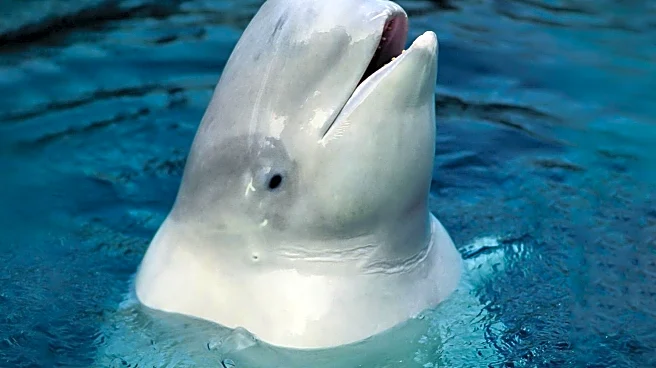What is the story about?
What's Happening?
Marineland, a Canadian theme park, has announced it may have to euthanize 30 beluga whales if it does not receive emergency funding from the federal government. The park, which has been under scrutiny for its treatment of captive animals, closed last year and has been attempting to sell its assets. Marineland's request to export the whales to China was denied by Canada's fisheries minister, citing concerns over perpetuating poor treatment. Since 2019, 20 whales have died at the park, and inspectors have reported distress among the animals due to poor water quality.
Why It's Important?
The situation at Marineland highlights the ethical and logistical challenges of managing captive marine mammals, especially in light of Canada's legislation against holding such animals. The potential euthanasia of the whales raises significant animal welfare concerns and could spark public outcry and activism. The case underscores the complexities of transitioning captive animals to new environments and the financial burdens faced by facilities housing them. It also reflects broader trends in declining attendance at ocean-themed shows and growing criticism of animal captivity.
What's Next?
Without government intervention, Marineland may proceed with euthanasia, which could lead to legal and ethical debates. The park's management may continue to seek alternative solutions, such as partnerships with other facilities or fundraising efforts. The Canadian government may face pressure to reconsider its stance or provide support to ensure the welfare of the whales. The situation could influence future policies on animal captivity and conservation efforts.
Beyond the Headlines
The crisis at Marineland raises questions about the long-term viability of captive animal facilities and the ethical implications of breeding animals for entertainment. It may prompt discussions on the need for comprehensive plans for the care and relocation of captive animals. The case could also influence public perception of marine parks and contribute to shifts in cultural attitudes towards animal welfare.















